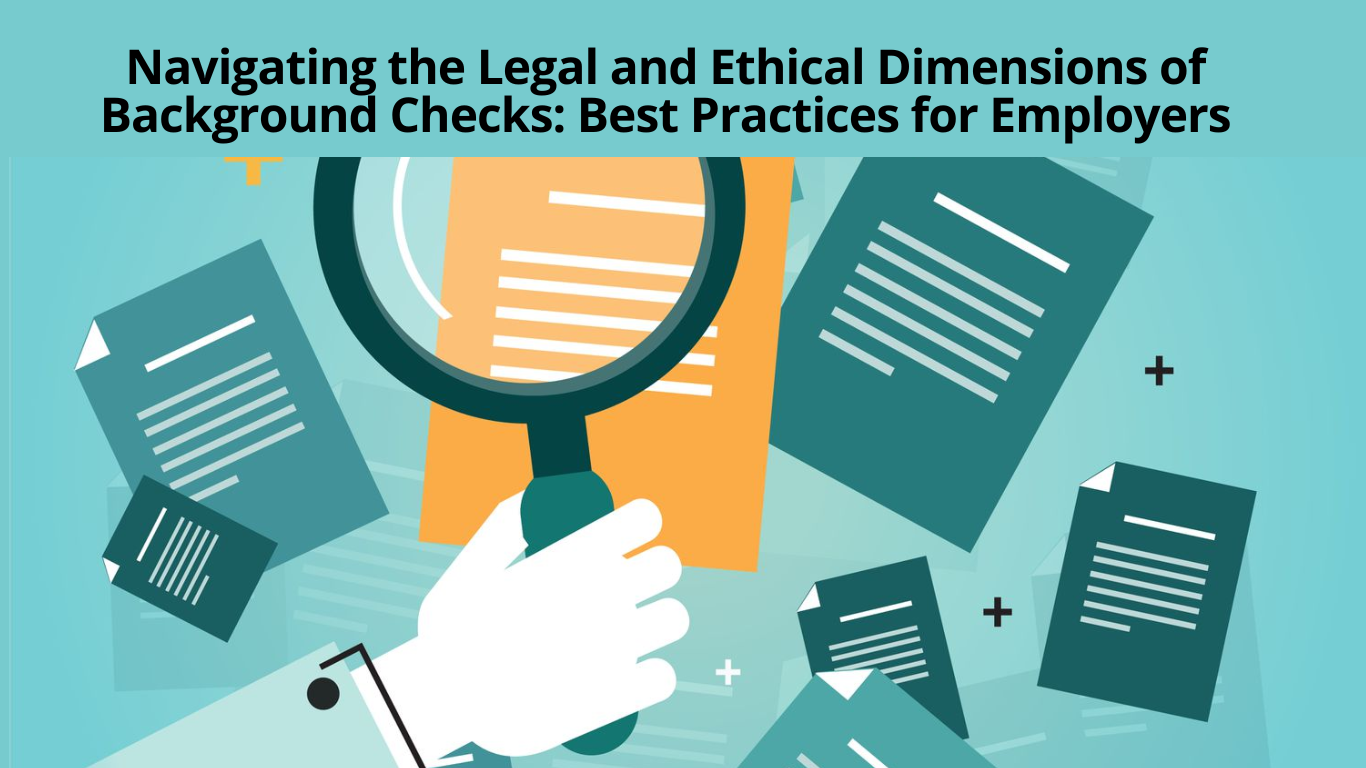In the complex landscape of modern employment, the practice of conducting background checks has become a critical component of the hiring process. Employers rely on these checks to ensure the integrity, reliability, and suitability of their potential employees. However, navigating the intricate web of legal and ethical considerations surrounding background checks is no small feat. Employers must balance their need for information with respect for the privacy and rights of candidates. This blog post explores the legal and ethical dimensions of background checks and offers best practices for employers to follow.
Understanding the Legal Framework
The legal landscape governing background checks is multi-faceted, involving federal, state, and local laws. At the federal level, the Fair Credit Reporting Act (FCRA) sets the tone for how employers can obtain and use background report information.
Ethical Considerations
Ethics play a pivotal role in the conduct of background checks. Employers must tread carefully to respect the privacy and dignity of candidates. Ethical considerations include:
- Necessity: Only conduct background checks that are necessary for the position. For example, a financial background check might be relevant for a finance position but not for a maintenance role.
- Consistency: Apply the same criteria to all candidates for a given role to avoid discrimination.
- Transparency: Inform candidates about the background check process, what it entails, and how the information will be used.
Best Practices for Employers
To navigate the legal and ethical dimensions of background checks, employers should adopt the following best practices:
1. Develop a Clear Policy
Craft a comprehensive background check policy that outlines the types of checks conducted, the roles for which they are necessary, and the criteria used to evaluate the results. This policy should be regularly reviewed and updated to reflect changes in laws and best practices.
2. Obtain Informed Consent
Always obtain explicit, written consent from candidates before conducting background checks. Clearly explain what the check will involve and how the information will be used.
3. Use Reputable Services
Engage with reputable background check providers who understand the legal requirements and ensure the accuracy of their reports. This minimizes the risk of acting on incorrect information.
4. Focus on Job-Relevant Information
Limit the scope of background checks to information that is directly relevant to the candidate’s ability to perform the job. Avoid unnecessary intrusions into their privacy.
5. Provide Opportunities for Explanation
If potentially disqualifying information is discovered, give candidates the opportunity to explain the circumstances. Sometimes, there are mitigating factors or inaccuracies that should be considered.
6. Ensure Non-Discrimination
Ensure your background check policy and practices comply with the Equal Employment Opportunity Commission (EEOC) guidelines to prevent discrimination based on race, color, national origin, sex, or religion.
7. Keep Information Secure
Protect the confidentiality and security of all personal information obtained during the background check process. Only those who need to know should have access to this information.
8. Train Your Team
Ensure that everyone involved in the hiring process understands your background check policy, the legal obligations, and the ethical considerations.
Navigating the legal and ethical dimensions of background checks is essential for maintaining a fair, respectful, and compliant hiring process.
FAQs
- What does the FCRA mean for background checks?
The FCRA mandates employer consent before checks and notification if results affect job chances. - Must all jobs have background checks?
Not all, but checks are crucial for finance, security, or roles involving vulnerable groups. - Can job rejections be based on criminal history?
Yes, if the crime is job-relevant, considering its nature, relevance, and time passed, alongside EEOC and “Ban the Box” compliance. - How can background checks remain non-discriminatory?
Apply uniform criteria to all candidates and adhere to EEOC guidelines. - What if a background check uncovers concerning information?
Offer the candidate a chance to explain or dispute before making a final decision, as per FCRA guidelines.
